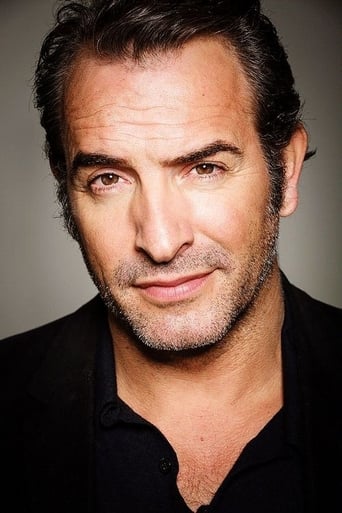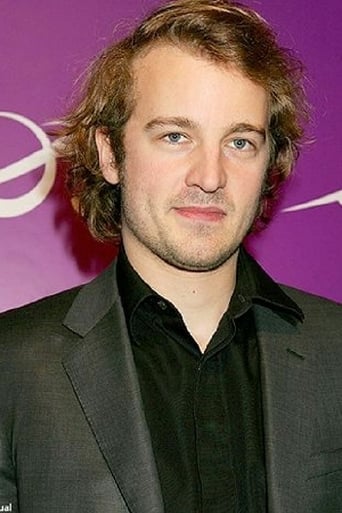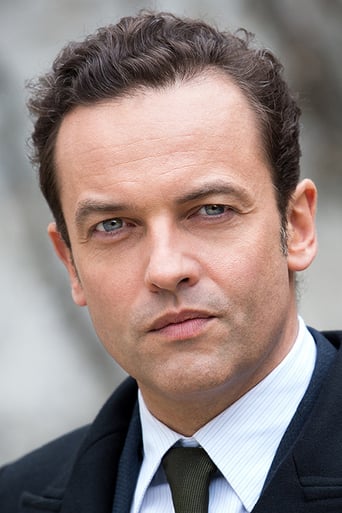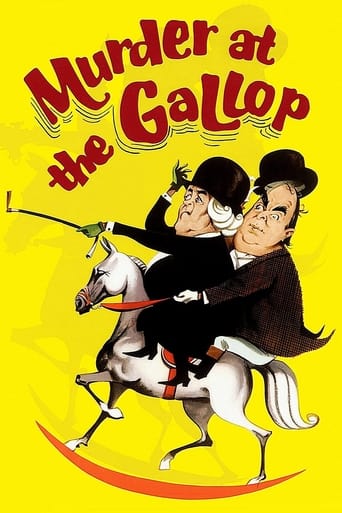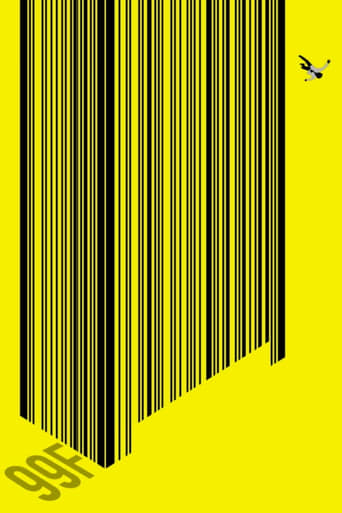
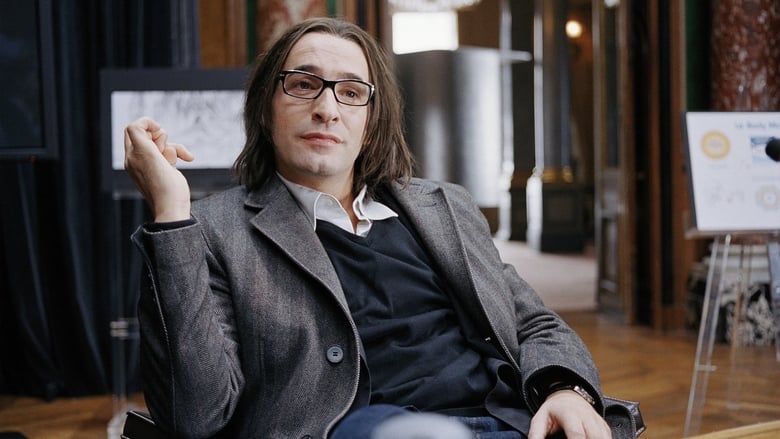
99 Francs (2007)
Paris, France, 2001. Octave Parango, a young advertiser working at the Ross & Witchcraft advertising agency, lives a suicidal existence, ruled by cynicism, irresponsibility and debauchery. The obstacles he will encounter in developing a campaign for a new yogurt brand will force him to face the meaning of his work and the way he manages his relationship with those who orbit around his egotistic lifestyle.
Watch Trailer
Cast


Similar titles
Reviews
A good entertaining movie! Good movie, do not a comedy and parody, not just a film about drug addicts and irresponsible people. Film about the cynicism of our time on the venality of all. With the offer to see the world differently. The depth of the fall into the abyss of immorality. There is black humor and is not normative lexicon, as well as elements of eroticism and a lot of blood. The world of advertising so is business. The ending is so generally pleasantly surprised. Such an end, but as it turned out is not the end. Frankly I do not understand people who write something like "wasting time", etc. Movies must be different! And do not worry on the "worst film of the book." Just look!
I pretty much hated the movie right from the start. You just know quite fast when you start watching a film, any film, whether the film rings true or whether it's full of sh*t. 99 francs was the latter.The film was full of clichés and bad jokes. Probably some of the "funny" stuff was France-centric and don't mean that much to others, but that can't really explain the staggering dumbness I had to witness. I felt like I was treated like a 10 year old who has never seen a film or read a book, or really knows nothing about the realities of the world. Actually it felt like the makers were 15 year old teens who felt like they wanted to set the record straight of what the advertising world reaaalllyyy is like. But the problem is that there was absolutely nothing new here. We've seen this stuff million times before.Like other reviewers have pointed out here this was apparently a successful book transformed to film. That explains a lot, because usually it's really hard to achieve the atmosphere successfully. And this film tried really just too much. In a way I appreciate the franticness of the film, and of course I do appreciate the obviously high production values, but to me it was all just a waste. The knowledge of those can't erase the disappointing feeling the film gave me, and that's why I only give it 3 stars.
99 Francs is French filmmaker Jan Kounen's critique of consumer culture, based on the book of the same title by Frédéric Beigbeder. After 1 hour and 40 minutes of slick film-making, replete with ironic references to famous ad campaigns, beautiful people and lots of sex and drugs and rock & roll, the movie ends with a meek call to action stating that with a mere fraction of the money spent on advertising each year, we could put an end to world hunger. This astonishingly lame ending undermines any value the movie might have had.I suppose the altruistic blurb at the end of the movie is the kind of palliative the filmmakers needed to include in order to convince themselves that their movie has a higher moral purpose. The question is, why do they even bother? In reality, it is just a story about a narcissistic, self-loathing fashion victim who sees the error of his ways. The great irony, of course, is that had they spent all their time and money on charitable projects instead of making this movie, they could have contributed much more to ending world hunger.Himself an ex-creative adviser for an ad agency, Beigbeder wrote 99 Francs under the encouragement of another famous French author, Michel Houellebecq. Octavo, the main character, hoovers cocaine in rails forming the numbers 666, pops whatever pills he can get his hands on, screws hookers, drives under the influence, and , in his spare time, works for France's most powerful ad agency as a creative adviser. After a drug-fueled escapade in which several people might have been hurt, he decides to redeem himself. The movie offers two endings - one happy, one sad - and they both have him renouncing his consumerist lifestyle: one treats him as a Christ-like martyr, the other has him living out a Rousseauian back-to-nature fantasy on an island. Grade school stuff, I know, but not so awful as it sounds.In the adept hands of Jan Kounen, the movie is visually-engaging, rhythmic, and yes, entertaining. The problem is the story. Just like the book, the overall feeling is one of disingenuousness. Remember the scene in Fight Club where Tyler Durden goes on about the superficiality of our consumer lifestyle? "You're not how much money you have in the bank. You're not the car you drive. You're not the contents of your wallet. You're not your f***ing khakis." Somehow, a hot-$hit guy dressed in fashionable clothes isn't the most convincing of anti-consumerism preachers. That's kind of what happens in 99 Francs.Even with the main character's redemption, 99 Francs gives the impression that it is more intent on looking cool than trying to open people's eyes to the evils of consumerism. Basically, Jan Kounen and Frédéric Beigbeder deliver us the cinematic equivalent of putting a "Stop Global Warming" bumper sticker on a gas-guzzling Hummer.
Yesterday, I saw this movie in a sneak preview of a German cinema. In Germany this film is called 39,90 like the title of a book from Frédéric Beigbeder that is also an impeachment against the advertising industry. 99 francs is a funny, cruel and "sloping style" satire. It provides an funny and terrifying real insight into the world of advertisement. Coevally, this film is something like a personality profile of a man that is a victim the world he created. A unreal, pseudo-world, in which you can get everything for money.Nothing in 99 francs is subtle, like advertising isn't subtle. Advertising is mostly one: No, not annoying. It's repetition. The repetition of itself and - in content - of references in movies, literature and art. And so it's logical that this movies refers to all different culture historical things to charge consumerism. So there are allusions to "A Space Odyssey" or "Fight Club". I think you have to see this movie to make up your own mind because it's really hard to describe this visually stunning movie because feels like a roller coaster with lots of loops.


